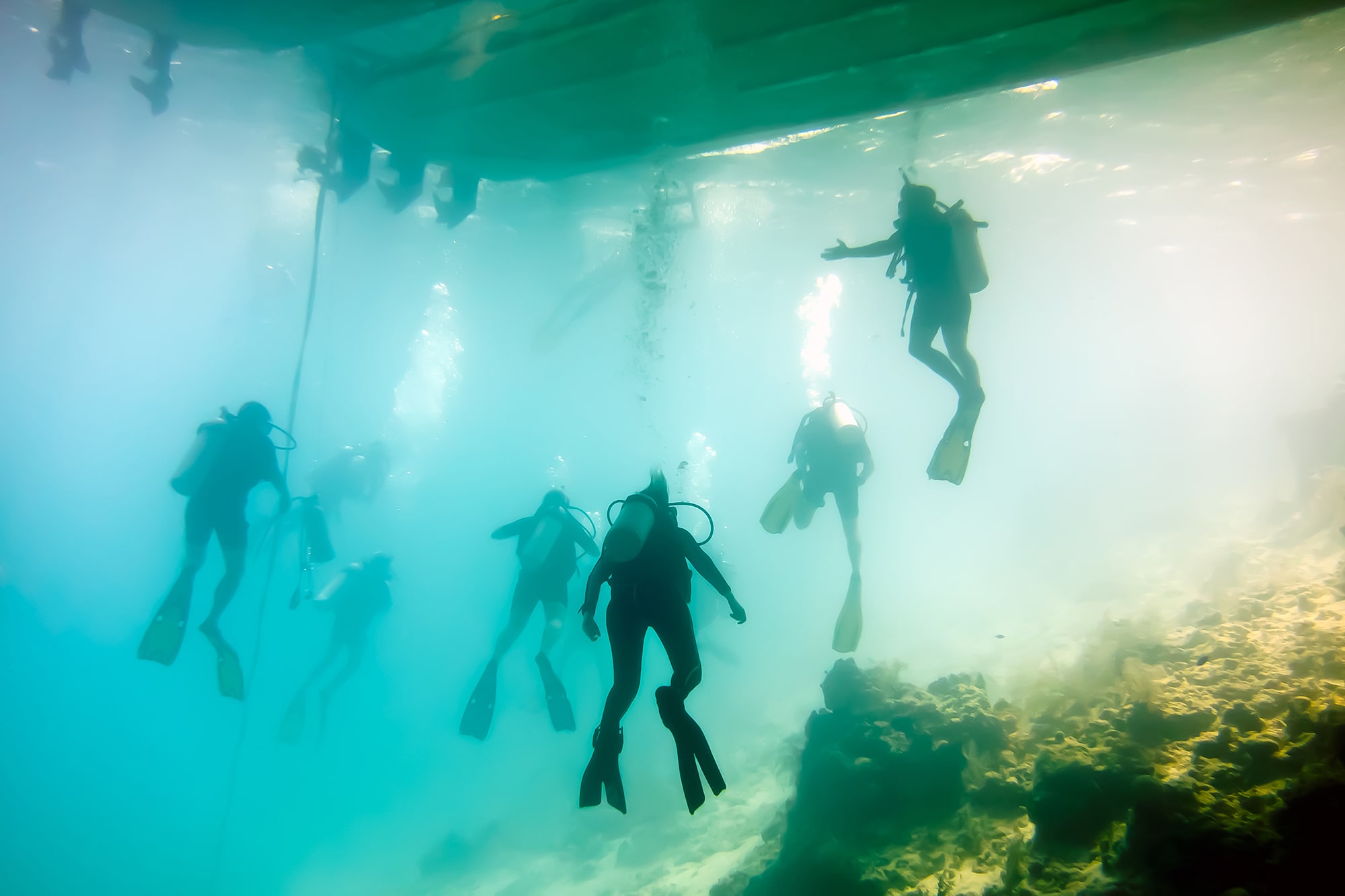Effects of Diving on the Brain (Part 2)
We keep examining the possible relationship between acute dive injuries and neurological complications. The question is still unresolved, and we submit to the experts a second series of questions to better understand some of the effects of diving on the brain.
What is the relationship between reduced neuropsychological performance and the presence of brain lesions?
Moon: So far, no one has demonstrated any such relationship in divers.
Uzun: The presence of brain lesions does not always reflect a reduction in neuropsychological performance. However, some studies have established a correlation between white-matter lesions and cognitive impairment in older adults, and some others suggested that periventricular white-matter lesions were predictive of future development of dementia. On the other hand, studies assessing the relationship between brain lesions and neuropsychological performance in divers failed to demonstrate any correlation.
Tetzlaff: Impaired executive functioning and memory have been found to be significantly associated with white-matter brain lesions.
How do voluntary apnea and hypoxia relate to potential brain damage in breath-hold divers?
Moon: When breath-hold divers reach the surface, their blood oxygen levels are often low (hypoxemia), which causes some breath-hold divers to lose consciousness for a few seconds. It is conceivable that repetitive hypoxic episodes like this could cause cumulative brain damage.
Uzun: A few studies have investigated brain damage in breath-hold divers. One recent study (Andersson et al., 2009) reported an increase in serum levels of the S100B protein, a marker of neural damage, immediately after voluntary apnea. The authors postulated that hypoxia-induced neuronal damage or temporary impairment in the blood-brain barrier could account for this finding. Whether voluntary apnea causes cerebral damage in the long term is yet to be determined.
Tetzlaff: Prolonged breath holding will reduce oxygenation of the brain. There is evidence from the field of obstructive sleep apnea that intermittent hypoxia is associated with cognitive decline and silent brain infarcts, which predominantly involve small-vessel cerebrovascular disease. However, unlike patients with obstructive sleep apnea, breath-hold divers do not appear to develop permanent sympathetic or any significant reflex cardiovascular activation. The increase in serum levels of a protein called S100B, a brain-damage marker, after extreme apneas performed by elite breath-hold divers may point to the likely disruption of the blood-brain barrier. S100B, however, is a nonspecific marker and may be increased by extracranial injury. Extreme apneas as performed by elite breath-hold divers cause significant stress on the cardiovascular and respiratory systems. It should be noted that extreme breath-hold diving is a dangerous activity that can cause serious health hazards, among which long-term brain damage is the least worrisome.
What risks to the central nervous system does diving impose on a person?
Moon: The main risk, although low, is cerebral decompression illness (DCI). This could be due to DCS (in-situ bubble formation in tissues) producing bubbles in blood vessels that could then reach the brain. This may also be caused by arterial gas embolism (AGE), where bubbles result from rupture of alveoli in the lung during decompression caused by breath holding or lung disease.
Uzun: Scuba diving is associated with a number of neurological risks including DCS, AGE, anoxia and high-pressure nervous syndrome.
Tetzlaff: The major mechanism leading to central nervous system damage from diving is through gas embolism of arterial cerebral vessels. This can be caused acutely by AGE following pulmonary barotrauma or spillover of venous gas emboli to the arterial circulation (as may occur in the presence of a PFO). Also, silent embolism of cerebral microvessels by inert gas bubbles may cause chronic injury. Thus, uneventful diving and diving within no-decompression limits should minimize risk to the central nervous system from diving.
Should scuba divers with no history of DCS worry about long-term cumulative injuries from diving?
Moon: No.
Uzun: No. There is currently no convincing evidence that scuba diving causes long-term cerebral damage in asymptomatic divers.
Tetzlaff: There is no need to worry. As outlined above, ischemic cerebral vessel disease may occur as a consequence of gas bubbles arising from diving, but diving within recommended limits and following recommended procedures should prevent such injuries.
Meet the Experts
Richard Moon, M.D., obtained his medical degree from McGill University in Montreal, Canada. He is professor of anesthesiology and medicine and medical director of the Center for Hyperbaric Medicine and Environmental Physiology at Duke University Medical Center in Durham, N.C.
Kay Tetzlaff, M.D., is associate professor of medicine in the department of sports medicine at the university of Tuebingen, Germany, and consultant in diving and hyperbaric medicine.
Günalp Uzun, M.D., is an associate professor of underwater and hyperbaric medicine at the GMMA Haydarpasa Teaching Hospital in Istanbul, Turkey.
Current Research
To better understand some of the effects of diving on the brain, researchers at DAN are beginning a study that will screen divers for acute effects of scuba diving on executive brain functions. The objective of the study is to assess possible neurological dysfunction after extreme breath-hold diving and deep scuba diving in asymptomatic divers.

